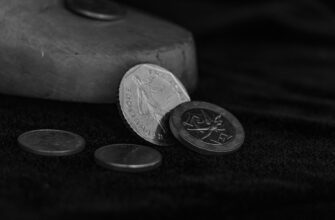## Introduction
With Nigeria’s rapidly evolving digital asset landscape, NFT trading has surged as a lucrative investment avenue. As we approach 2025, creators and investors face a critical question: Are NFT profits taxable in Nigeria? While definitive 2025 regulations are still emerging, current tax frameworks and global trends provide strong indicators. This guide breaks down potential tax obligations, compliance strategies, and expert predictions to help you navigate Nigeria’s NFT taxation landscape responsibly.
## Understanding NFT Taxation Fundamentals
NFTs (Non-Fungible Tokens) represent unique digital ownership of art, collectibles, or virtual assets. In Nigeria, profits from NFT sales or royalties typically fall under two tax categories:
– **Capital Gains Tax (CGT)**: Applies if NFTs are held as investments (10% on profits).
– **Income Tax**: Applicable if trading is frequent/business-like (up to 24% for companies or progressive rates for individuals).
The Federal Inland Revenue Service (FIRS) classifies crypto assets as “intangibles,” placing NFT profits within existing tax laws despite lacking NFT-specific rules.
## Nigeria’s 2025 NFT Tax Outlook: Key Predictions
Based on 2024 regulatory trends, expect these developments by 2025:
1. **Explicit NFT Guidelines**: FIRS may issue dedicated directives clarifying NFT classification and reporting requirements.
2. **Stricter Exchange Reporting**: Crypto platforms like Binance could face mandatory transaction reporting to FIRS.
3. **DeFi & Royalty Inclusion**: Earnings from NFT staking or automated royalties may face income tax.
4. **Naira Valuation Rules**: FIRS will likely mandate profit calculations in Naira at transaction time.
## Calculating Your NFT Tax Liability (2025 Projection)
Follow this framework to estimate obligations:
1. **Determine Profit**:
Sale Price − Purchase Cost − Gas Fees = Taxable Profit
2. **Convert to Naira**:
Use CBN exchange rates on transaction dates
3. **Apply Tax Rate**:
– **Investors**: 10% CGT on gains
– **Professional Traders**: Income tax (up to 24% for businesses)
*Example*: You buy an NFT for ₦500,000 and sell for ₦2,000,000. After ₦50,000 in fees, profit is ₦1,450,000. CGT due: ₦145,000.
## Compliance Strategies for Nigerian NFT Traders
– **Record-Keeping Essentials**:
– Transaction timestamps
– Wallet addresses
– Naira conversion proofs
– Fee receipts
– **Proactive Measures**:
1. Separate crypto wallets for business/personal NFTs
2. Quarterly tax savings (set aside 10-25% of profits)
3. Use blockchain analytics tools (e.g., Etherscan) for audit trails
## Penalties for Non-Compliance
Failure to report NFT profits may trigger:
– 10% late payment penalty + 21% annual interest
– FIRS audits and asset freezes
– Legal prosecution under Section 41 of FIRS Act
## FAQ: NFT Taxation in Nigeria 2025
**Q: Are NFT losses tax-deductible?**
A: Yes, capital losses can offset gains if properly documented.
**Q: Does minting NFTs incur taxes?**
A: Not directly, but initial sale profits are taxable.
**Q: How are NFT royalties taxed?**
A: Recurring royalties likely qualify as income tax, not CGT.
**Q: Can FIRS track my NFT transactions?**
A: Yes, through centralized exchanges and blockchain analysis tools.
**Q: Will Metaverse land sales be taxed?**
A: Virtual real estate profits will likely follow standard NFT tax rules.
## Conclusion
NFT profits are almost certain to face taxation in Nigeria by 2025, aligning with global standards and FIRS’ expanding digital asset oversight. While regulations remain fluid, prudent record-keeping and early engagement with tax professionals are crucial. Monitor FIRS announcements for NFT-specific guidelines expected before 2025. Always consult a certified Nigerian tax advisor for personalized compliance strategies.








